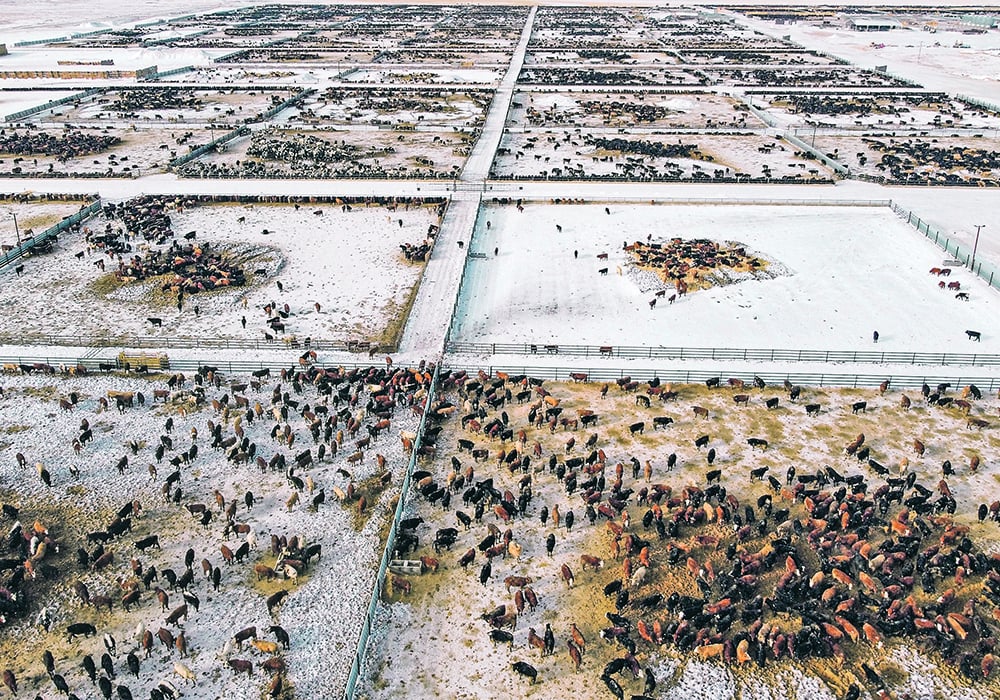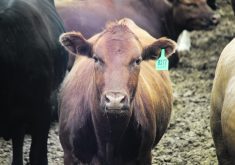CALGARY — One of the people fighting the Alberta government’s approval of a proposed $70 million biodigester doesn’t expect much will come of provincial mediation slated for May 30 as part of the appeal process.
“I think for the whole group, there’s just too many concerns involved,” said Benita Estes.
Related stories:
- Alta. residents to appeal biodigester approval
- Alta. town keeps up pressure on biodigester plan
- Odour reduction too little
- Biodigester developer fields concerns in Alta.
- Feedlot works to fix odour mystery
Read Also

Crop quality looks good this year across Prairies
Crop quality looks real good this year, with the exception of durum.
Her rural home in Foothills County near High River is about 200 metres from the site of the 102-acre development, raising fears about increased traffic and foul odours.
The project by Rimrock Renewables Ltd. will convert manure from the nearby Rimrock Feeders cattle feedlot into renewable natural gas for about 6,000 homes. It will also process waste from restaurants, grocery stores, slaughterhouses and fish farms, said Estes during an earlier interview.
The facility, which is expected to be the largest of its kind in North America, will be located 5.5 kilometres west of High River’s nearly 15,000 residents south of Calgary.
Estes said in an email that gas plants of any kind are not an agricultural project and do not belong on agricultural zoned land among people’s homes, particularly for a project she alleged was riddled with issues “not even remotely addressed” by the company or the provincial environment ministry.
Twelve appeals have been filed against the biodigester, including one from High River’s town council, said Gilbert Van Nes, general counsel for the provincial Environmental Appeals Board. A mediator will be reaching out on May 15 to conduct introductory telephone conversations with each of the parties involved in the appeals, after which virtual mediation will be held online May 30, he said.
High River and area residents fear things a proposed 20.7-acre open pond at the biodigester will aggravate what they describe as an ongoing foul smell from the feedlot. The provincial Natural Resources Conservation Board received about 1,300 complaints from 277 people during the first nine months of 2023, up from 285 complaints during the same period in 2022.
However, Rimrock Renewables has said the biodigester will reduce odours by about 42 percent by removing manure from the feedlot, which contains about 32,000 cattle. When asked about its plans for the project, the company said in an email Feb. 14 it will not be participating in media interviews at this time.
Van Nes said the goal of the mediation will be to try to reach an agreement that resolves concerns about the biodigester without having to go through the full appeal process. Estes said in an interview she can’t see the company being able to “meet all of what we want done, or not done for that matter. I can’t see it coming to any conclusion, but I don’t know, stranger things have happened.”
If mediation is unsuccessful, the Environmental Appeals Board will hold a public hearing that will likely last for at least three days, said Van Nes. The scheduling of the hearing depends on the availability of all the parties involved in the appeals, “and one of the challenges, of course, is a lot of people go away for vacation in the summer. The fall is probably a good bet, but we would try to hold it as soon as possible.”
It will likely be conducted in a local hotel or community hall if the board decides to hold the hearing in person rather than online, he said. Three people will be chosen to form a panel out of the nine-member Environmental Appeals Board, he added.
The selection will be based on experience relevant to the issues raised in the appeals against the biodigester, said Van Nes.
“The board is composed of environmental experts,” he said.
“Some of the board’s members are lawyers, others are engineers, university professors, things like that. The board is an expert board hearing these appeals, so they have a sound technical, scientific background.… The thing that drives the board is the technical evidence that’s presented to it, and the board’s job is to make sure that the right technical decision was made.”
It’s possible the board could have further questions after the hearing, said Van Nes.
“But eventually, we would close the hearing, and then 30 days from the date of that hearing, we would provide a report and recommendations to the minister of environment and protected areas, (Rebecca Schulz).”
The report could either confirm the project, confirm it with changes or recommend that the approval be cancelled, he said.
“And then it would be up to the minister to make the final decision with respect to the project.”
Schulz’s decision can be appealed through a judicial review involving the Court of King’s Bench, said Van Nes. However, people must be able to prove that the board made a procedural mistake that treated someone unfairly, such as excluding one of the parties from speaking, he added.
“And it would be unfair, and the court would send it back for us to fix that mistake; or alternatively, if the board made recommendations and the minister made a decision that was outside the scope of the legislation, so basically completely unreasonable, then, again, the court could send it back to the board to remake that decision, taking into account that direction.”
Contact doug.ferguson@producer.com
















